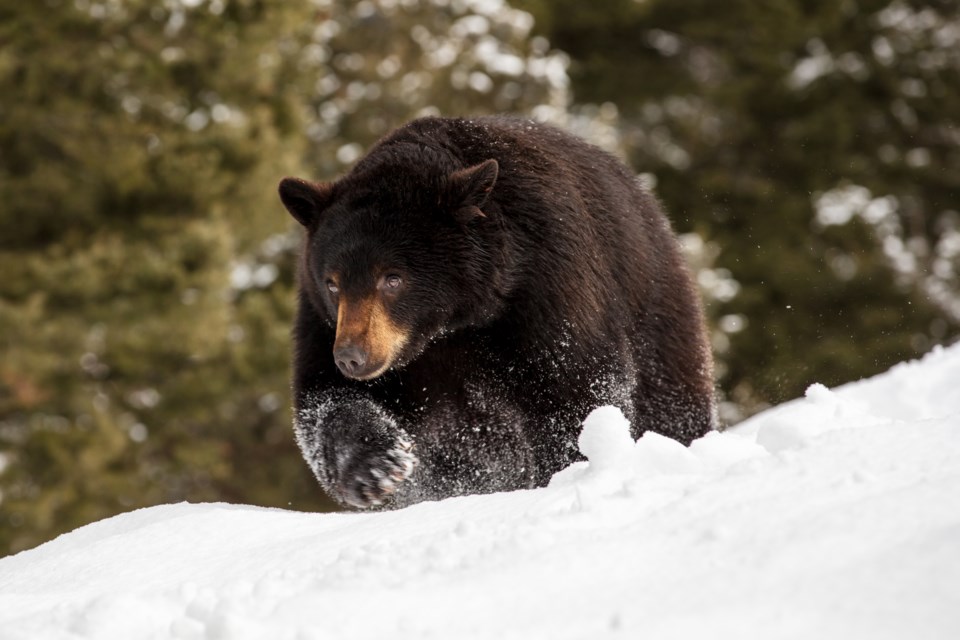Usually, the BC Conservation Officer Service (COS) will receive one or two reports of bear sightings in Whistler throughout the winter months, “and that would be it,” according to Sea to Sky-based conservation officer Brittany Mueller.
Between Feb. 1 and 24 this year, it received eight.
“In coastal areas that are quite temperate, it's normal to have bears coming in and out of hibernation, but for Whistler, I would say this is definitely an abnormal year,” Mueller explained.
One of those reports stemmed from a black bear encounter in the Lost Lake Park area on Saturday, Feb. 18, where a mature black bear approached trail users and their leashed dog on the White Gold Traverse trail. The encounter prompted the Resort Municipality of Whistler to issue a wildlife alert for the community several days later.
Mueller said the animal initially appeared behind the trail user and their dog, and seemed to be curious.
“It stood momentarily, which we know bears do not for aggressive behaviour, but they do that to try to get a scent,” she said. The bear reportedly walked in the trail users’ direction before passing by the group.
“They backed up out of the way and then the bear continued on,” Mueller said. “It didn't bluff charge, it didn't vocalize; it looked like it was more of a curious behaviour … but they were yelling at it and trying to deter it from approaching.”
Conservation officers attended the site following the encounter and placed signage in the area to warn others.
“I think it shows us that … these encounters can happen anytime of the year now,” Mueller added. “I think we need to be aware that there is a bear out and about.”
Though officials can’t be sure whether the higher-than-usual number of sightings this winter are linked to one or several bears, Mueller said it’s more than likely the bear spotted near Lost Lake did go into den, but has been going in and out of hibernation after accessing available food sources amid generally mild temperatures this winter.
Bears have been observed accessing bird feeders and sniffing around barbecues in recent months, while most of the bear sightings and activity reported to COS this winter have taken place in and around the village area, Mueller said.
In terms of the Lost Lake encounter, where conservation officers’ concern lies “is that this bear’s behaviour may escalate because it doesn't have any other natural food sources through the winter,” said Mueller.
She stressed the importance of removing or securing attractants like bird feeders and pet food, keeping barbecues clean or out of reach of wildlife and being “extra-cautious” about garbage storage, “which we should be doing anytime of the year, really,” she said.
“If the bears aren't in it, it's the raccoons—all other predators would be attracted to it.”
Mueller also praised the trail user involved in the Lost Lake-area encounter for keeping their dog on a leash. “The dog didn't pursue the bear—it didn't have the opportunity because it was on a leash,” she said. “So it was a very controlled encounter, on the human side.”
In December, local conservation officers killed a male black bear after weeks of unsuccessful efforts to haze the animal out of Whistler Village. The bear's behaviour was deemed to be a public safety risk after it began approaching people for food.
“We are asking the public to not be naive, to not assume that bears are in den and start to be negligent in terms of attractant management,” COS Sgt. Simon Gravel noted at the time.
“Attractant management in a place like Whistler needs to be 12 months a year.”
The RMOW is asking locals and visitors to respect any wildlife signage posted in the Lost Lake area and report bear sightings to the COS by phone at 1-877-952-7277.




